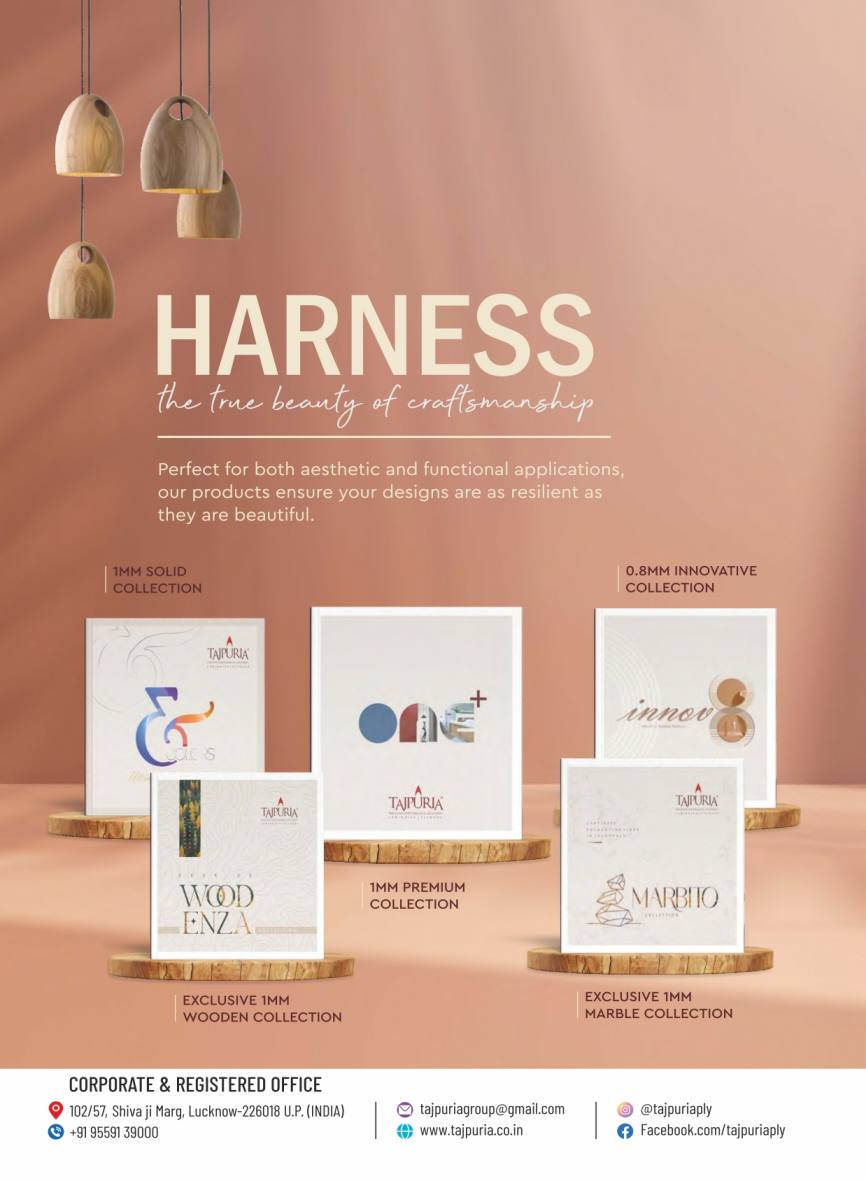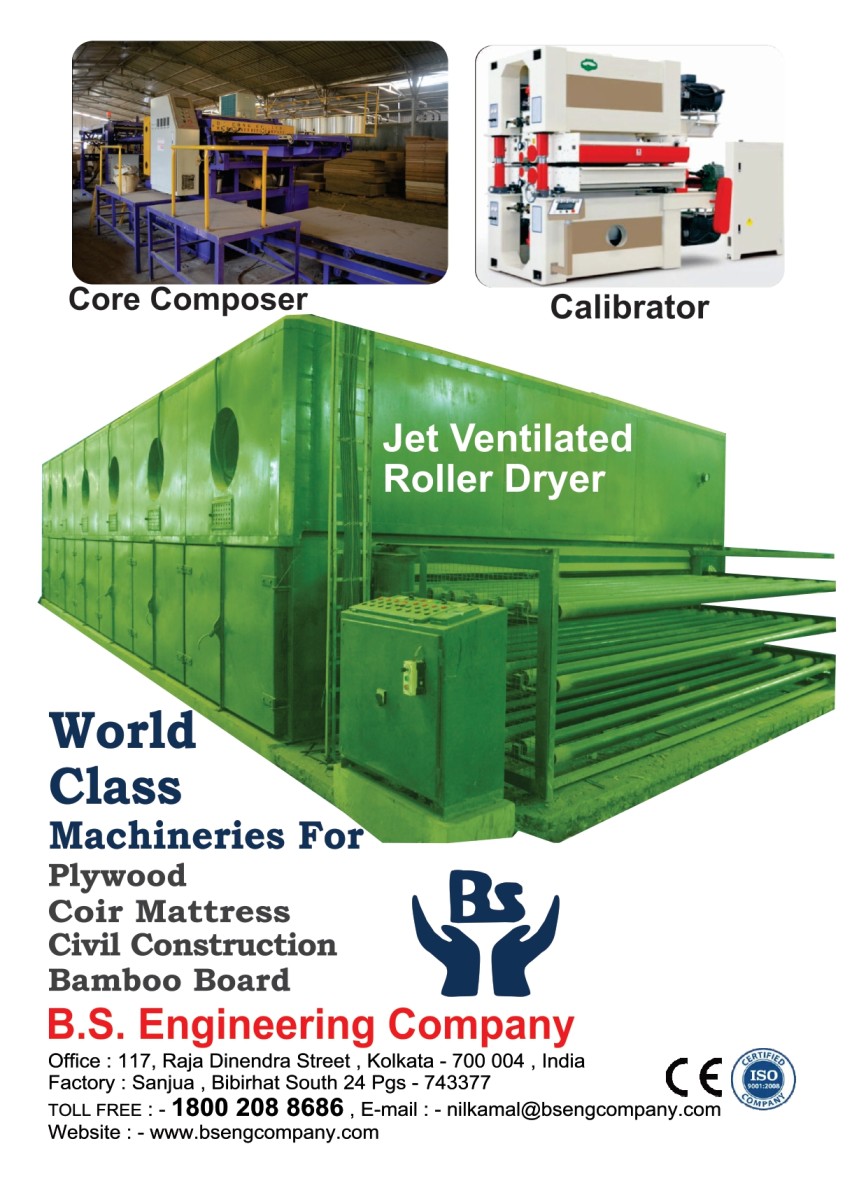
MAHABIR AGARWAL
- अगस्त 31, 2021
- 0
It’s a difficult time. Because plywood factories are mushrooming here. No license required, no monitoring of GST department. Permission is also not being taken from the Forest Department. An old hot press is brought and a pasting unit starts. After this, regardless of the quality of the goods, the goods that is produced is sold in the evening, neither the need of the bill nor the factory law followed. Consequently, the plywood market of Kolkata is running through a crisis. Shri Mahaveer Agarwal expressed his views In a conversation with The Ply Insight.
Market Finance Condition
It effected the demand for quality goods. Running the units with discipline and according to law is planning the medium units. It seems that Kolkata has become a mini Yamunanagar. At least ten units has come up
here in the lockdown period. Units set up production facility with old machineries, without paying attention to the quality.
Supply of goods is more in the market, than demand. This is also creating problems. Working in cash has not yet been established norm. That’s why we have to work on credit. The problem is that the payment market is tight.
Implication of GST
GST has given ease of working, but the problem is that GST is not being monitored and it is not being implemented strictly. If we are working with Bill, but the other person in the market is working without bill, then it will definitely make his goods cheaper. How can the GST payers stay in the market?
Raw Material availability
The problem in Kolkata is that the labor cost is marginally high here. Raw material is not easily available. We have to bring raw material from outside. Therefore, working style does not match with Yamunanagar.
We have Kadam and Lambu wood locally. Major problem is that the cultivation of Kadam and Lambu is not being done on a large scale. There is no Commercial plantation. As is agro-forestry in UP and Haryana, in this way wood is not being cultivated here. Even the government cannot provide vacant land, where Lambu and Kadam can be cultivated. Plantation is needed on a large scale here, but the problem is that the farmers here are not keen on agro-forestry.
[/vc_column_text]
यह मुश्किल वक्त है। क्योंकि यहां मशरूम की तरह प्लाईवुड फैक्ट्रीयां लग रही है। न लाइसेंस की जरूरत, न जीएसटी डिपार्टमेंट की निगरानी है। वन विभाग से भी इजाजत नहीं ली जा रही है। एक पुरानी प्रेस लाकर पेस्टींग यूनिट लगा ली। इसके बाद माल की गुणवत्ता पर ध्यान दिये बिना ही जो माल तैयार कर लिया शाम को बेच दिया ना बिल की जरूरत ना ही फैक्ट्री कानून पालन की। इस वजह से कोलकाता का प्लाईवुड उद्योग संकट के दौर से गुजर रहा है। श्री महावीर अग्रवाल ने द प्लाई इनसाइट से बातचीत में दिक्कतों पर चर्चा की।
बाजार की वित्तीय स्थिति
इसका नुकसान यह हुआ कि उच्च गुणवत्ता के माल की मुश्कीलें बढ़ रही है। सबसे ज्यादा दिक्कत कायदे कानून से चलने वाली मध्यम यूनिट को आ रही है। ऐसा लग रहा है कि कोलकत्ता मिनी यमुनानगर बन गया है। लॉकडाउन में यहां कम से कम दस यूनिट लग गई। पुरानी मशीनरी खरीद कर यूनिट तो खड़ी कर ली। पर गुणवत्ता की ओर उनका ध्यान नहीं हैं। बाजार में माल की आपूर्ति ज्यादा हो रही है, लेकिन डिमांड कम है। इस वजह से भी दिक्कत आ रही है। नगद में काम काज करने की स्थिति अभी तक नहीं बनी है। इसलिए पुराने तरीके से ही उधारी में काम करना पड़ रहा है। दिक्कत यह भी है कि बाजार में फिलहाल तरलता की कमी है।
जीएसटी लागू होने से बदलाव
जीएसटी ने काम करने में सहुलियत तो दी है,लेकिन दिक्कत यह है कि जीएसटी की निगरानी नहीं की जा रही है और इसे कडाई से लागू नहीं किया जा रहा है। हम यदि बिलो में काम कर रहे हैं, लेकिन सामने वाला बिना बिल में काम कर रहा है इससे उसका माल सस्ता तो होगा ही। फिर जीएसटी देने वाले कैसे मार्केट में बने रह सकते हैं।
कच्चे माल की स्थिति
कोलकाता में दिक्कत यह है कि यहां लेबर कॉस्ट ज्यादा है। कच्चा माल आसानी से उपलब्ध नहीं है। हमें कच्चा माल बाहर से लाना पड़ रहा है। इसलिए यमुनानगर के तरीके से यहां काम नहीं हो सकता है।
हमें स्थानीय तौर पर कदम और लंबू की लकड़ी मिलती है। लेकिन दिक्कत यह आ रही कि कंदम और लंबू की खेती बड़े पैमाने पर नहीं हो रही है। कमर्शियल प्लांटेशन नहीं हो रही है। जिस तरह से यूपी और हरियाणा में कृषि वानिकी है, इस तरह से यहां लकड़ी की खेती नहीं हो रही है। ऐसी जगह भी नहीं है कि सरकार खाली जमीन उपलब्ध करा दें, वहां लंबू और कदम की खेती की जा सके। यहां बड़े स्तर पर प्लांटेशन की जरूरत है, लेकिन समस्या यह है कि यहां के किसान कृषि वानिकी की ओर नहीं आ रहे हैं।
































































